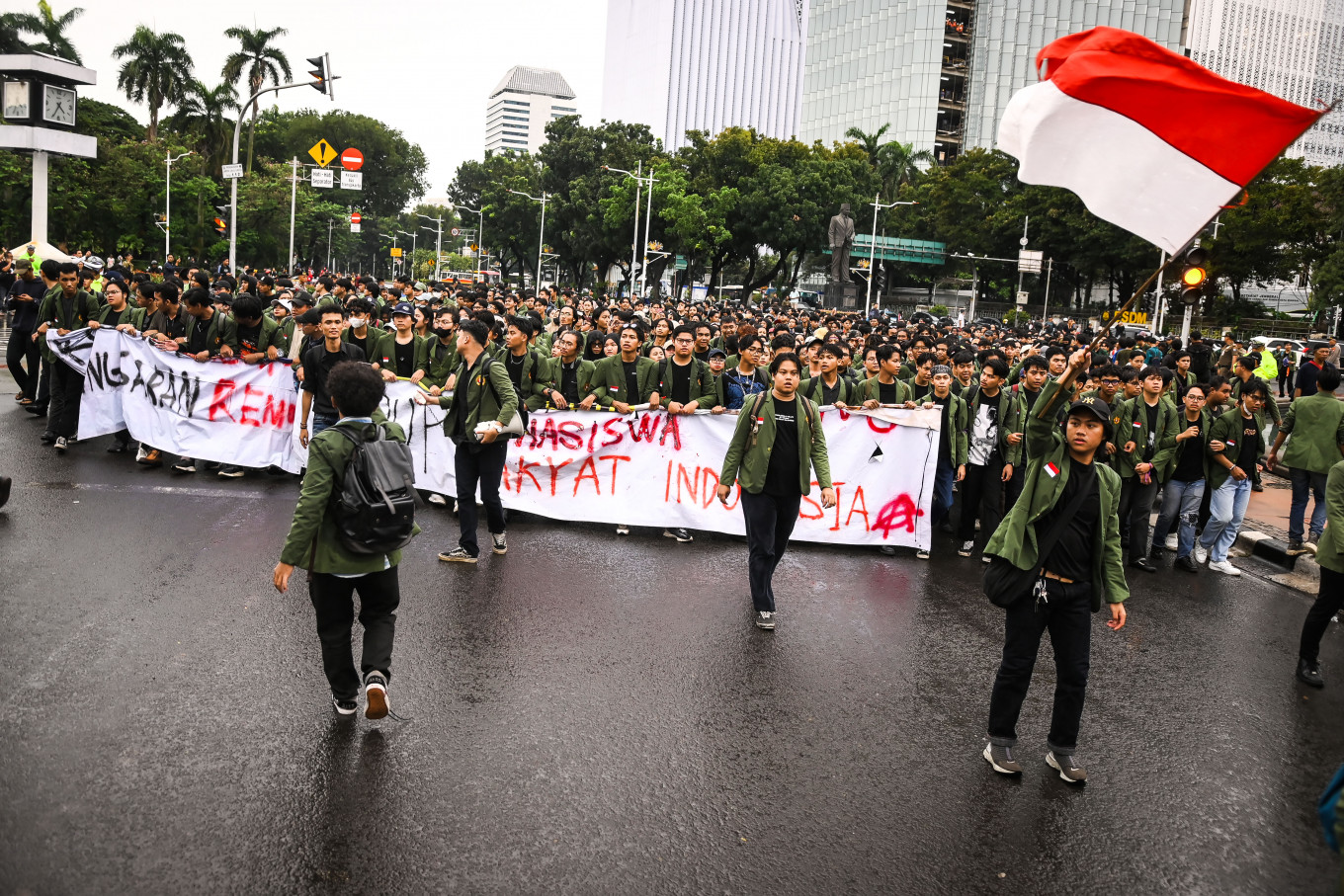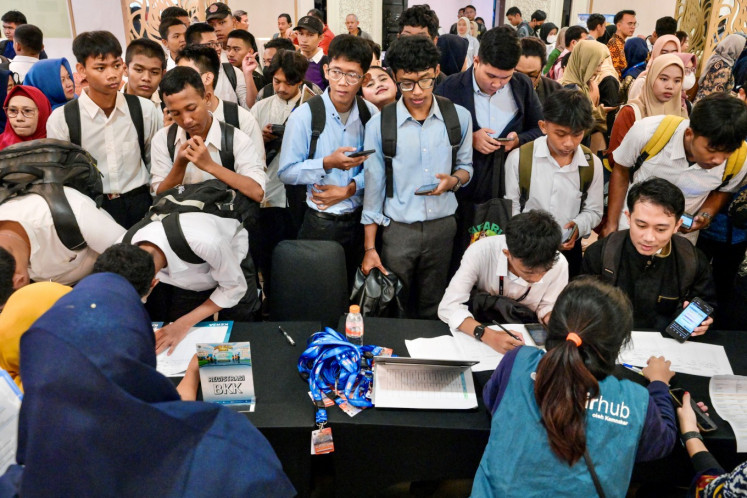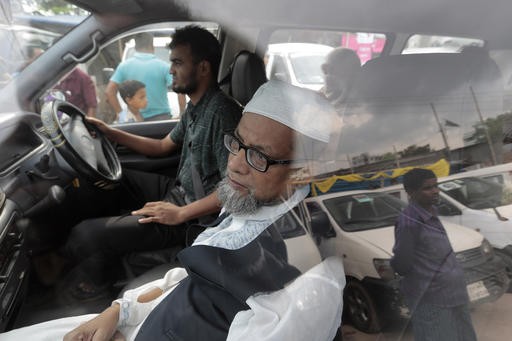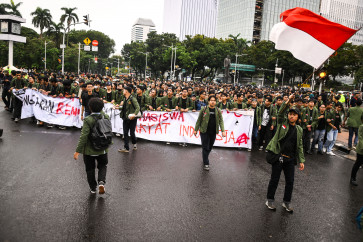Popular Reads
Top Results
Can't find what you're looking for?
View all search resultsPopular Reads
Top Results
Can't find what you're looking for?
View all search resultsVoices unheard: The curse or blessing of digital democracy?
The official reaction, ranging from open dismissal to the deployment of “buzzers”, illustrates the limited impact of digital activism on actual policy or institutional reform.
Change text size
Gift Premium Articles
to Anyone
 Students belonging to the Association of University Student Executive Bodies (BEM SI) rally in Jakarta on Feb. 17, 2025, as part of the Idonesia Gelap (Dark Indonesia) movement, the students called for the revocation of budget cuts in the education sector, which they said would heavily impact tuition fees and scholarship funds. (Antara Foto/Sulthony Hasanuddin)
Students belonging to the Association of University Student Executive Bodies (BEM SI) rally in Jakarta on Feb. 17, 2025, as part of the Idonesia Gelap (Dark Indonesia) movement, the students called for the revocation of budget cuts in the education sector, which they said would heavily impact tuition fees and scholarship funds. (Antara Foto/Sulthony Hasanuddin)
W
ith the rise of hyperconnectivity, digital platforms have become an alternative stage for political discourse, bridging geographical divides and transforming how citizens engage with power.
This transformation is also evident in Indonesia, where hashtags like #ReformasiDikorupsi (Reform corrupted), #PeringatanDarurat (Emergency Warning), #IndonesiaGelap (Dark Indonesia), #KaburAjaDulu (Just run away first), etc. have channeled public voices into a swarm and collective digital activism. Through posts, tweets, viral videos and a constant stream of user-generated content, civic actors challenge power structures while amplifying demands for transparency and accountability.
Yet, these digital movements have not always succeeded in translating online momentum into significant policy shifts or government responsiveness. Although social media offers open-stage avenues for citizen involvement, official institutions often respond by fortifying their control mechanisms.
This presents an inherent paradox in digital democracy. The tension between grassroots activism and state authority reflects the broader question as to whether digital platforms can truly grow substantive democratic change.
Indonesia’s embrace of social media has given birth to a dynamic form of political activism that operates in real-time. The #ReformasiDikorupsi protests of 2019 and #PeringatanDarurat of 2024 stand out as some of the earliest large-scale demonstrations facilitated through Twitter (now X), Facebook and other platforms. Ignited by concerns over grassroots problems, digital citizens produced and shared infographics and viral memes that reached millions of people.
Even though the movements fell short of their legislative aims, they demonstrated the potency of digital mobilization in unifying diverse groups around a shared cause.
Subsequent campaigns only reinforced this potential. #PeringatanDarurat, launched in 2024, sought to prevent the House of Representatives from undermining a Constitutional Court ruling by passing the controversial amendment to the Regional Elections Law. The hashtag, accompanied by a blue Garuda, rapidly transitioned into a real-world symbol of protest. Crowds thronged public spaces, emboldened by a sense of digital solidarity.


















